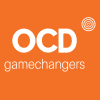Grief is an emotion that everyone will deal with at some point in their life, unfortunately. However, this does not make it any easier to confront or intrinsically know how to deal with. Individuals suffering with OCD often experience emotions a little bit differently to the average person, and this may cause a response that is outside the norm.
When confronted with tragedy and loss, it is normal to be overwhelmed with sadness and other negative emotions. For an OCD sufferer, this type of experience and the emotions that come with it may trigger a trauma response. This is essentially where the brain interprets a danger or a threat to the individual where there may not actually be one, and in most cases there isn’t. This is not to say that what the person is experiencing isn’t very real and difficult to deal with, just that someone without OCD would be likely to exhibit less extreme behaviour as a response. An example of this may be that someone with OCD loses a loved one to a car accident and is then convinced that if they are to ever drive or be driven in a car again they are going to die or kill someone else. This may lead to a response of avoidance— where they simply refuse to enter a vehicle lest they be faced with an overwhelming amount of anxiety— or reassurance-seeking behaviours such as asking family members over and over again if they think it is safe. These are just a couple possible responses that an OCD sufferer may have to a loss and the experience of grief.
On another note, there are many OCD sufferers who experience grief when they are diagnosed or are going through intense periods of OCD symptomatology. This grief may arise from feelings of shame over their experience, or even regret that they did not receive a diagnosis sooner so that they may be further along in their treatment by this time. While these feelings are extremely valid, there are some ways in which they may be dealt with to alleviate the power of grief. Self-compassion is one very helpful mindset to practice and there are many resources for individuals with OCD who want to learn this skill including workbooks and support groups. Of course, ERP or Exposure-Response Prevention therapy is also a tried and true treatment for dealing with OCD symptoms and can also likely help confront the emotion of grief.
There are many ways for individuals with OCD to deal with grief— whether it be caused by a tragic life event or their experience with OCD itself. Grief can be an overwhelming emotion and can sometimes feel like it is too big to deal with, but this is not the case with so many resources and trained professionals who can work to facilitate healing and growth. If you are experiencing grief and also dealing with OCD know that you are never alone and there will always be somewhere for you to turn, starting with OCD Gamechangers!
Samantha Cartwright
Author

